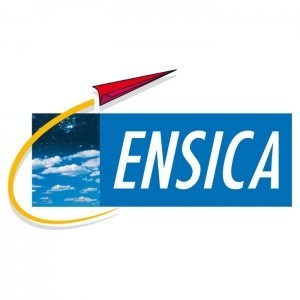Photos of university / #universityofleeds
Flowability Assessment of Weakly Consolidated Powders is a specialized postgraduate program offered by the University of Leeds, designed to equip students with comprehensive knowledge and practical skills in the characterization and evaluation of powder flow behavior. This programme is particularly relevant for professionals and researchers working in industries such as pharmaceuticals, food processing, chemicals, and materials engineering, where understanding powder dynamics is crucial for product development, manufacturing efficiency, and quality control.
The program provides an in-depth understanding of the fundamental principles of powder flow and consolidation, focusing on the unique challenges posed by weakly consolidated powders. Students will explore various techniques and instruments used to measure flowability, including shear cell testing, rheometry, and angle of repose assessment. The curriculum combines theoretical lectures with practical lab sessions, enabling students to gain hands-on experience in conducting flowability assessments, analyzing data, and interpreting results in the context of process optimization.
Throughout the course, learners will examine the factors influencing powder flow, such as particle size and shape, moisture content, and environmental conditions. Emphasis is placed on understanding the relationship between powder properties and their flow behavior, as well as on developing strategies to improve flowability in industrial processes. The programme also discusses recent advancements in measurement technologies and modeling approaches that aid in predicting powder behavior under different conditions.
The degree program includes modules on the design and execution of flowability experiments, data analysis techniques, and reporting findings effectively. Students will engage with case studies drawn from real-world applications, fostering the ability to address practical challenges in powder handling and processing. Additionally, the programme encourages critical thinking and problem-solving skills, preparing graduates for careers as researchers, quality assurance specialists, or process engineers in relevant sectors.
The University of Leeds is renowned for its research excellence and state-of-the-art laboratories, providing an ideal environment for studying complex powder behaviors. With a curriculum aligned to current industrial needs and incorporating the latest scientific developments, the program ensures graduates are well-equipped to contribute to innovations in powder technology. Upon successful completion, students will receive a postgraduate qualification that signifies advanced expertise in the assessment of powder flowability, opening doors to diverse career opportunities across various industries.
Flowability Assessment of Weakly Consolidated Powders is a specialized postgraduate programme offered by the University of Leeds, designed to equip students with advanced knowledge and practical skills in the evaluation of powder flow properties relevant to various industries, including pharmaceuticals, food manufacturing, and materials engineering. The course provides a comprehensive understanding of the fundamental principles underlying powder behaviour, including particle size distribution, shape, surface properties, and consolidation effects that influence flowability. Students will explore various testing methods and analytical techniques used to assess flow characteristics, such as shear cell testing, Hall flowmeter, and tapped density measurements, gaining hands-on experience through laboratory sessions and industry case studies. The programme also emphasizes the importance of understanding material variability and how it impacts process performance, product quality, and scalability. In addition to technical coursework, students will develop critical skills in data analysis, interpretation, and reporting to support decision-making in industrial settings. The curriculum covers topics such as powder handling, processing, and storage, as well as standards and regulations relevant to powder materials. Throughout the programme, students are encouraged to engage in research projects focusing on real-world challenges related to powder flowability, fostering innovation and practical problem-solving abilities. Graduates of the programme will be well-prepared for careers in research and development, quality assurance, process engineering, and technical consultancy roles within industries that rely on the efficient handling of powders and granular materials. The programme combines academic excellence with industry partnerships to ensure that students are equipped with relevant, up-to-date knowledge and skills to meet the demands of modern manufacturing environments.
The program in Flowability Assessment of Weakly Consolidated Powders at the University of Leeds is designed to provide students with a comprehensive understanding of the principles and techniques used in evaluating the flow behavior of powders that exhibit weak consolidation. The curriculum covers fundamental concepts of powder mechanics, including particle size distribution, shape analysis, and the factors influencing flowability such as moisture content, particle cohesion, and environmental conditions. Students will engage with advanced analytical methods and laboratory techniques to measure flow parameters like Hausner ratio, Carr index, angle of repose, and tapped density. The program emphasizes both theoretical frameworks and practical applications, preparing graduates for careers in industries such as pharmaceuticals, food processing, material engineering, and mining, where powder handling and processing are critical. Instruction includes detailed case studies illustrating common challenges in powder flow and methods to optimize flowability, prevent blockages, and improve manufacturing efficiency. Students will also learn about recent developments in predictive modeling and simulation tools used to forecast powder behavior under various conditions. The program encourages research-based projects, giving students the opportunity to contribute to innovations in powder technology and contribute to safer, more efficient industrial processes. Collaboration with industry partners is a key element, providing real-world insights and potential employment pathways. Academic staff are experienced researchers and practitioners in powder technology, offering mentorship and guidance throughout the program. Upon completion, graduates will have acquired the skills necessary to perform comprehensive flowability assessments, interpret complex data, and implement solutions to improve powder handling performance. The program aims to produce professionals capable of advancing existing technologies and developing new methodologies in the field of powder flow analysis. Networking events, seminars, and workshops are integral parts of the curriculum, fostering a community of practice among students, faculty, and industry experts. The program duration is typically one year for taught master's degrees, with options for research-focused postgraduate research year. Entry requirements include a degree in engineering, materials science, chemistry, or a related field, along with relevant laboratory experience or industry exposure. Overall, this program is tailored for individuals seeking to specialize in the analysis and optimization of powder flow behavior, equipping them with up-to-date knowledge and practical skills demanded by modern industry standards.
The financing of the "Flowability Assessment of Weakly Consolidated Powders" program at the University of Leeds is primarily supported through a combination of university funds, national research grants, and potential partnership collaborations with industrial stakeholders. The university allocates resources for research-driven programs to ensure cutting-edge facilities and expert faculty involvement. Students may have access to scholarships, bursaries, or research funding opportunities designed to support postgraduate research activities. Additionally, external funding bodies such as the Engineering and Physical Sciences Research Council (EPSRC) and other governmental agencies often provide grants targeted at innovation and applied research in material science and pharmaceutical engineering, which align with the program’s focus. International students may have access to scholarship schemes specific to their regions or funding sponsored by their governments for international research exchange.
The cost structure for participation in the program includes tuition fees, which are set annually and vary depending on residency status. Entrance scholarships or fee waivers may be available based on academic merit or specific criteria outlined by the university. Students may also seek research assistantships that offer stipends and tuition fee waivers in exchange for research duties, thus effectively reducing the overall financial burden. The university’s research centers and laboratories are equipped with state-of-the-art analytical instruments and testing facilities, which are maintained through continuous investment, ensuring students and staff have access to advanced technology without additional charges.
Furthermore, the university encourages industry-funded projects where companies sponsor research to develop practical applications of powder flowability assessments, offering a potential source of funding and real-world experience for students. The program ensures that financial support mechanisms are transparent and accessible, with details available through the university’s official financial aid office and research services. Overall, the financing structure is designed to promote accessible, high-quality research education while facilitating innovation and collaboration between academia and industry, securing the necessary resources for the successful delivery and advancement of the "Flowability Assessment of Weakly Consolidated Powders" program.
The MSc in Flowability Assessment of Weakly Consolidated Powders at the University of Leeds is a specialized postgraduate program designed to equip students with a comprehensive understanding of the fundamental principles and practical techniques required to evaluate and improve the flow properties of powders and granular materials. This programme caters to professionals and graduates interested in materials science, chemical engineering, pharmaceuticals, food technology, and related fields where powder handling and processing are critical. The curriculum covers key topics such as the physical and chemical characteristics that influence powder flow behavior, various measurement techniques including rheometry and bed tilt methods, and the implications of powder flowability in industrial applications. Students will engage in both theoretical studies and laboratory work, developing skills in experimental design, data analysis, and interpretation to assess flow properties accurately. One of the core components involves studying the impact of particle size, shape, moisture content, and consolidation on flowability, which are essential parameters in designing efficient manufacturing processes. The course also emphasizes the importance of understanding material cohesiveness, and the influence of environmental factors such as humidity and temperature. Through a combination of lectures, seminars, and practical sessions, students will gain hands-on experience with state-of-the-art analytical equipment and techniques used in industry and research. The program aims to prepare graduates for careers in industries like pharmaceuticals, food production, mineral processing, and materials development, where controlling and optimizing powder flow is critical to product quality and process efficiency. Graduates will also be equipped with research skills beneficial for pursuing further study or for roles in technical consultancy and quality control. The university’s research-intensive environment ensures that students benefit from close interactions with experts in powder technology, and opportunities for collaborative projects are often integrated into the learning experience. Overall, this MSc provides an in-depth exploration of the science and engineering principles behind powder flow behavior, making it a valuable qualification for those seeking to specialize in this technical field.





